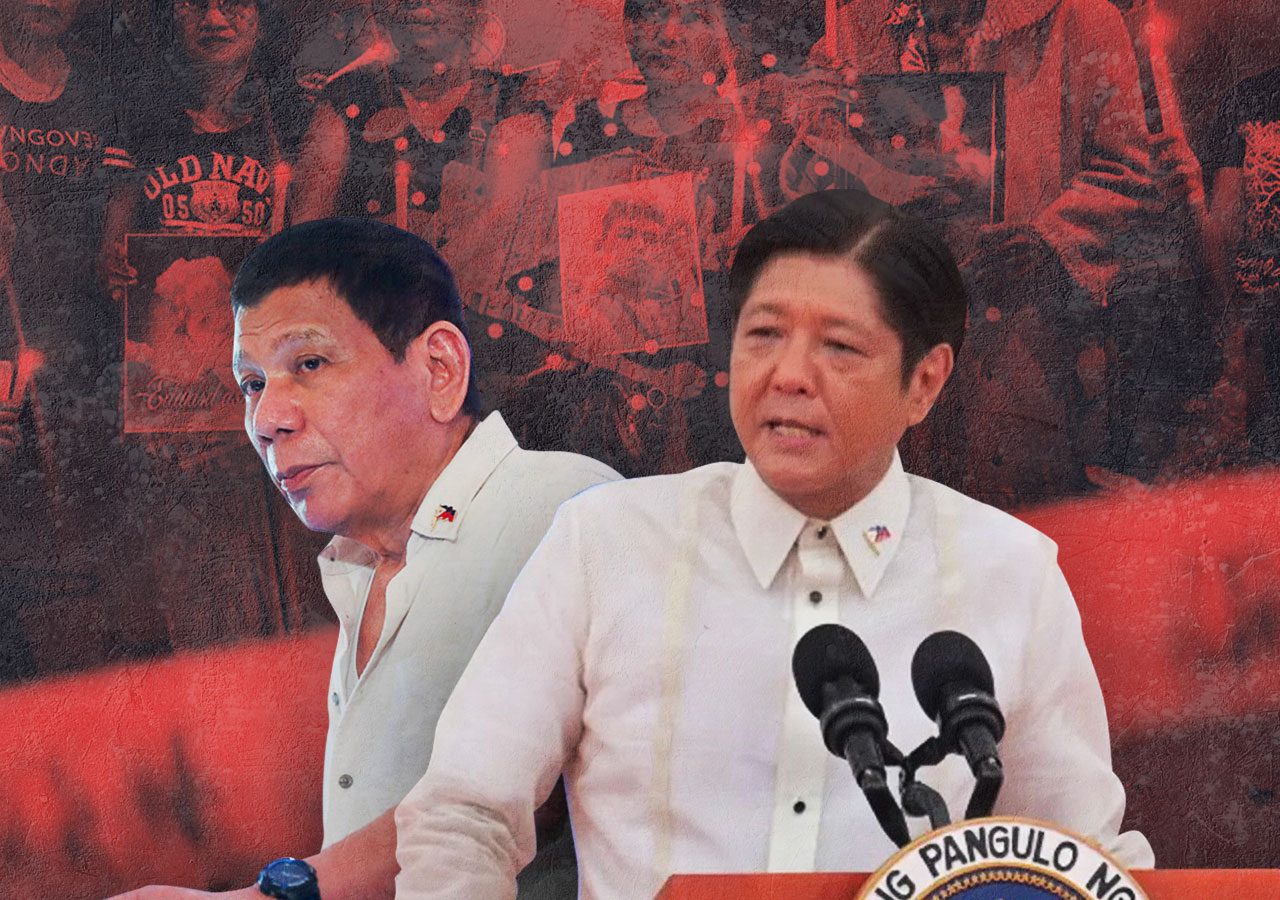SUMMARY
This is AI generated summarization, which may have errors. For context, always refer to the full article.

MANILA, Philippines – The Philippines still faces great challenges in dealing with widespread human rights abuses that continued under President Ferdinand Marcos Jr, Amnesty International said in its latest report released on Tuesday, March 28.
In its 2022/2023: The State of the World’s Human Rights annual report, the human rights group said that “unlawful killings under the ‘war on drugs’ continued and impunity for thousands of past killings remain entrenched.”
“The number of killings committed in the context of the ‘war on drugs’ rose after the new administration took office,” it said in the report.
The report noted that 324 drug-related killings in 2022 were monitored by Dahas, a project by the University of the Philippines Diliman’s Third World Studies Center. At least 175, or more than half, occurred after Rodrigo Duterte ended his term on June 30, 2022.
As of March 23, this number of killings has grown to at least 234.
The continued violence exists on top of the at least 6,252 killed in police operations alone during the Duterte administration, or by May 2022, according to government data. This tally does not include those killed vigilante-style, which, to human rights groups, bring the estimated number of victims killed to between 27,000 and 30,000.
Out of the thousands killed, only three have been convicted so far in relation to the drug war, including policemen involved in the killing of 17-year-old Kian delos Santos and the deaths of Carl Angelo Arnaiz and Reynaldo “Kulot” de Guzman.
The International Criminal Court (ICC)’s pre-trial chamber has authorized the resumption of an investigation into Duterte’s violent drug war, after it was not convinced that the Philippine government was pursuing significant probes. On March 21, the ICC’s appeals chamber allowed victims’ families to comment on the government’s appeal, saying that it is “appropriate for victims to be involved” in the proceedings.
Attacks vs dissenters, freedom of expression
Amnesty International, in its report, also highlighted attacks against human rights activists and defenders that continued from the Duterte administration to the Marcos presidency in 2022.
“Repression of dissent intensified and freedom of expression was further restricted as human rights defenders, political activists, journalists and others were subjected to unlawful killings, arbitrary arrest and detention,” the report stated.
It cited the case of human rights defender and Martial Law survivor Adora Faye de Vera who remains in detention after her arrest in August 2022 and the continued imprisonment of former senator Leila de Lima who recently marked her sixth year in prison.
Amnesty also highlighted the continued harassment of journalists, including the order of the Telecommunications Commission to block websites in the Philippines, as well as, that of alternative media outlet Bulatlat, and the remaining cases faced by Rappler and its CEO, Nobel Laureate Maria Ressa.
‘Shameless double standards’ led to abuses globally
On the global scale, Amnesty International highlighted the “importance of an effective and consistently applied rules-based international order” in line with the continued invasion of Ukraine by Russia and future issues that may arise. The response to the crisis in Ukraine shows what can be done “when there is political will.”
While it welcomed the swift response of Western countries against Russia, Amnesty pointed out that the “robust and welcomed approach stood in stark contrast to previous responses to massive violations” in other countries, including in Syria and even Myanmar.
“All states must step up their efforts for a renewed rules-based order that benefits everyone, everywhere,” Amnesty’s secretary-general and former United Nations rapporteur Agnes Callamard said in a statement.
“This response must be a blueprint for how we address all massive human rights violations,” she added. Amnesty called for reforms in the international systems, particularly the UN Security Council, to “reflect the realities of today” to prevent further inaction and lack of accountability against abuses. – Rappler.com
Add a comment
How does this make you feel?









![[Just Saying] SONA 2024: Some disturbing points](https://www.rappler.com/tachyon/2024/07/TL-marcos-sona-points-july-23-2024.jpg?resize=257%2C257&crop=335px%2C0px%2C720px%2C720px)




There are no comments yet. Add your comment to start the conversation.